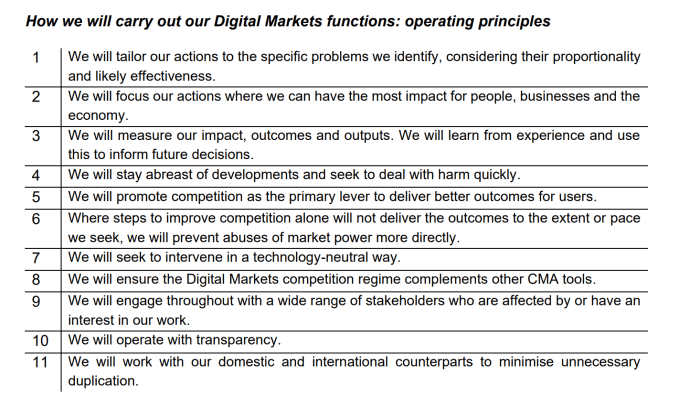![William Tunstall-Pedoe, founder, Unlikely AI [© 2017 Yolande De Vries]](https://techcrunch.com/wp-content/uploads/2024/07/William-TP-7.jpg?w=768)
After announcing a whopping $20 million seed last year, Unlikely AI founder William Tunstall-Pedoe has kept the budding U.K. foundation model maker’s approach under lock and key. Until now: TechCrunch can exclusively reveal Unlikely is taking a “neuro-symbolic” approach to its AI. In an additional development, it’s announcing two senior hires — including the former CTO of Stability AI, Tom Mason.
Neuro-symbolic AI is a type of artificial intelligence that, as the name suggests, integrates both the modern neural network approaches to AI — as used by large language models (LLMs), like OpenAI’s GPT — and earlier Symbolic AI architectures to address the weaknesses of each.
Tunstall-Pedoe gained public profile in the U.K. tech scene back in 2012 when Amazon acquired his voice assistant startup, Evi. Two years later Amazon launched the Echo and Alexa, incorporating much of Evi’s technology. With Unlikely AI, Tunstall-Pedoe is aiming to put himself back in the limelight as he takes the wraps off the technology he and his team have been working on since 2019, when the startup was founded.
At Stability AI, meanwhile, Mason managed the development of major foundational models across various fields and helped the AI company raise more than $170 million. Now he’s CTO of Unlikely AI, where he will oversee its “symbolic/algorithmic” approach.
In addition, Fred Becker is joining as chief administrative officer. He previously held senior roles at companies including Skype and Symphony. At Unlikely, his role will be to shepherd its now 60 full-time staff — who are based largely between Cambridge (U.K.) and London.
The AI startup claims its approach to foundational AI models will try to avoid the risks we’ve quickly become all-too-familiar with — namely bias, “hallucination” (aka fabrication), accuracy and trust. It also claims its approach will use less energy in a bid to reduce the environmental impact of Big AI.
“We’ve been working privately for a number of years and we’re very excited about our two new senior hires,” Tunstall-Pedoe told TechCrunch over a call.
Fleshing out the team’s approach, he went on: “We’re building a ‘trustworthy’ AI platform that’s designed to address pretty much all of the key issues with AI at the moment, as it pertains to… hallucinations and accuracy. We’re combining the capabilities of generative AI, statistical AI, with symbolic algorithmic methods, [and] conventional software methods to get expandability and reliability.”
He described the platform as “horizontal” in that it would “compound many different types of applications.”
Of the exact applications, he was more coy — but continued to emphasize the phrase “trustworthy AI.”
For his part, Mason said his time at Stability AI saw the company build “some amazing models” and “an unbelievable ecosystem around the models and the technology,” as he put it. It also featured the abrupt exit of founder Emad Mostaque, followed by a number of other high-profile team departures. While Mason wishes his former colleagues “all the best,” he said said he’s “super excited” to join Unlikely AI.
Stability AI CEO resigns because you’re ‘not going to beat centralized AI with more centralized AI’
Digging into the startup’s technology, Tunstall-Pedoe said the platform is composed of two things: “The word ‘neuro’ and the word ‘symbolic.’ ‘Neuro’ implies deep learning, so solving problems that machines have not been able to solve for decades… ‘Symbolic’ refers to the kind of software that powers your spreadsheets or other applications.
“One of the weaknesses of ‘neuro’ is that it’s sometimes wrong. When you train a model, you give it data, it gets better and better. But it never gets to 100%. It’s right, for example, 80% of the time, which means it’s wrong 20% of the time.”
He said this is “incredibly damaging to trust” because “the neuro calculation is opaque.” Indeed, there’s an entire field of research trying to understand what happens inside these huge LLMs.
Instead, he said Unlikely plans to combine the certainties of traditional software, such as spreadsheets, where the calculations are 100% accurate, with the “neuro” approach in generative AI.
“What we’re doing is combining the best of both worlds,” suggested Tunstall-Pedoe. “We’re taking the capabilities of LLMs, of all the advances in deep learning, and we’re combining it with the trustworthiness and expandability and other advantages — including things like cost and environmental impact — of non-statistical machine learning… The vision we have of AI is all of those capabilities, but in a way that’s completely trustworthy.”
He argues a combined approach will bring cost and environmental benefits, too, compared to today’s LLMs: “These models are incredibly expensive [to run] and environmentally unfriendly, but they are also costly in terms of trust by producing answers that are wrong.”
Why haven’t other foundational models taken a similar route?
“I think that that’s happening,” Mason responded. “Sometimes we talk about it as ‘compound architecture.’ We’ve seen the rise of things like RAG. That’s a kind of compound architecture. This is very much in the same vein, but it’s building on all of that with the advantages symbolic reasoning, making it possible to have completely accurate reasoning.”
In this respect, he said Mason believes Unlikely AI is “ahead of the wave.”
Another question is whether Unlikely AI will produce a fuller foundational model, such as OpenAI — or take a mixed approach, akin to Mistral’s, offering both foundational and open source models?
Tunstall-Pedoe said the company is still yet to decide the direction of travel: “We haven’t made any decisions like that yet. That’s part of internal discussions. But we’re building a platform and the rest is TBD… It’s a decision that we’re going to make in the near future.”
One thing is confirmed, though: It’s going to be built out of London and Cambridge: “Obviously we’ve got a much smaller population than in the U.S. and China. But London is a fantastic place to be building an innovative AI startup. There’s lots of talent here. Lots of innovation.”
While the model release timeline isn’t clear, Unlikely AI is certain about the strength of its ambition. Given AI is the number one strategic priority of every trillion-dollar market cap company out there, Tunstall-Pedoe said he’s shooting for major adoption. “We want to be massively successful, we want to have a huge impact. We’re certainly open to different ways of achieving that,” he added.

